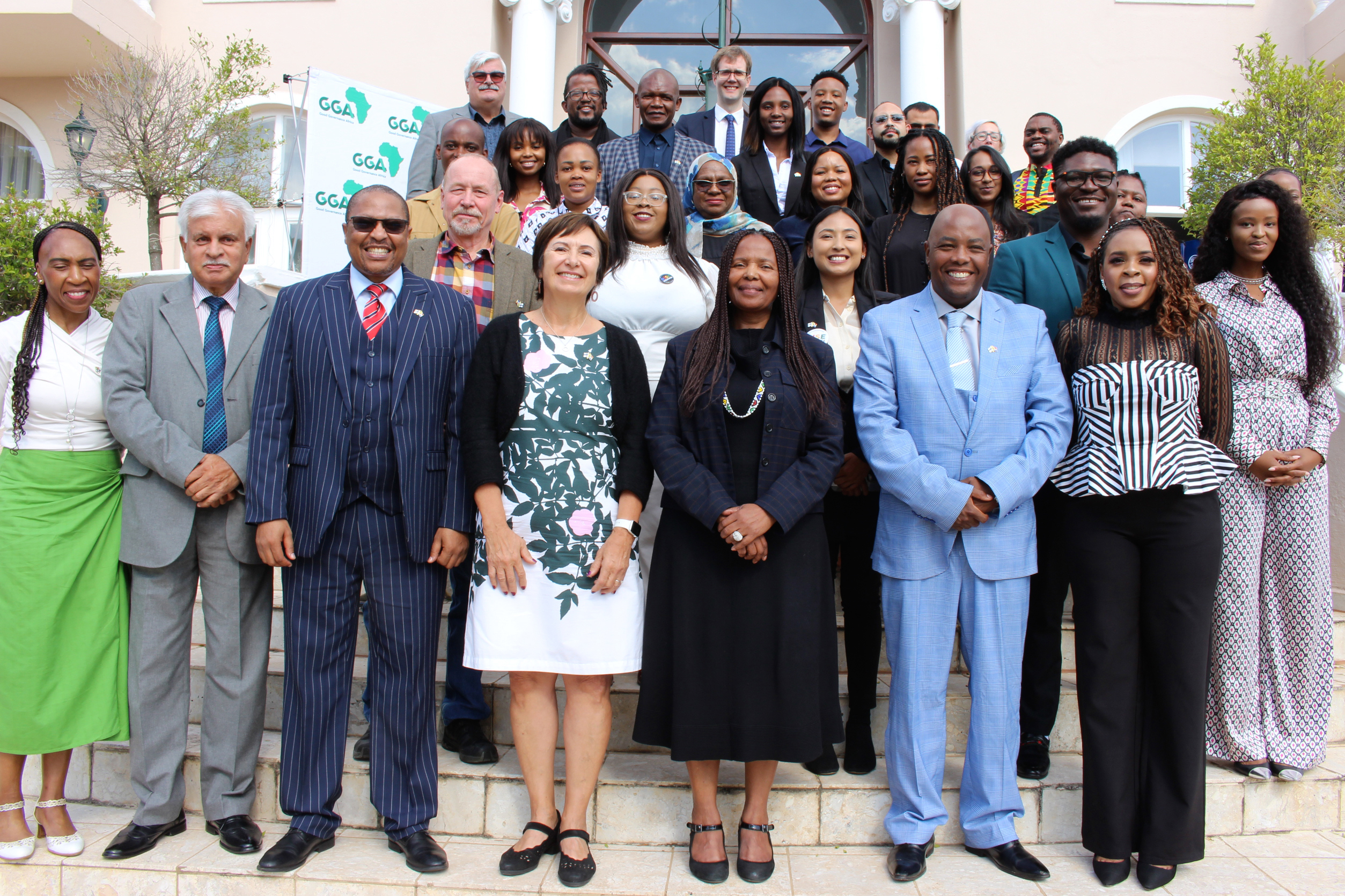Good Governance Africa (GGA), in collaboration with the Finnish government, held an event this week at the Pretoria residence of Finnish ambassador Anne Lamilla. The event examined the wins and losses during South Africa’s 30 years of democracy and the challenges that lie beyond the May 29 election.
Speakers at the event included GGA CEO Patrick Kulati, GGA head of governance insights and analytics, Chrissy Dube, Zukiswa Mqolomba, deputy chairperson of the Public Services Commission, policy development specialist Lukhona Mnguni, Lennon Monyae of the African Peer Review Mechanism, MD of Social TV Samm Marshall, and Afrobarometer communications coordinator for Southern Africa, Asafika Mpako.

Attendants at the GGA-Finland Embassy event. Front row, left to right: Tsakane Bok (Finland Embassy), Ambassador Prakarmajith Vijave (Mauritius), Patrick Kulati (GGA), Ambassador Anne Lamilla (Finnish ambassador), Maud Dlomo (Deputy DG at Dirco), Stevens Mokgalapa, BOSA Head of International Relations, Chrissy Dube (GGA).
Assessing the highs and lows over the last 30 years since South Africa’s first democratic election, Kulati said that although South Africa’s journey looked promising initially, 2009 marked the year that the course changed to darker times, politically and economically.
The country today was in a poor state, he said, so it was critical that citizens participate in the coming election, using their vote to find a “gap in the clouds” and a brighter course ahead.
Discussions focused strongly on the youth cohort, which makes up most of the population, whose voices are underrepresented at the government level. In this group, unemployment is the issue they want the elected government to address most urgently, said Mpako.
This is according to Afrobarometer’s August 2023 survey, which shows that in a national sample of 1,582 adults between 18 and 35 years old interviewed in December 2022, 54% identified joblessness as the most important problem. This was followed by crime (39%), electricity outages (30%), corruption (19%), and water shortages (19%).
Yet the youth’s turnout to elections, where issues like these are raised and citizens have the opportunity to hold politicians to account, has been steadily declining, Mpako said.
Marshall pointed to the lack of media communication with and about these groups as one reason for their voting apathy. “I have travelled to every South African province over the last few months. The youth don’t even know about bursary programmes that they could benefit from because no media is reaching them. CSI projects need to budget for media as a critical element of any project they undertake,” he said.
Governance and policy specialist Lukhona Mnguni added that smaller communities tend to make their own plans in the absence of government intervention to improve lives. “Municipalities are supposed to integrate these community-based plans. Political institutions need to collaborate with grassroots organisations,” he said.
Ambassador Lamilla emphasised the importance of strong women’s representation at all levels of government, especially given their close investment in quality education, healthcare, and child and elderly care.
The event was closed with a lunch served to about 40 guests, including GGA team members, embassy representatives, government officials, civil society representatives, youth leaders and members of the diplomatic community.











